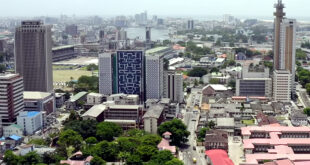The United States says it is concerned about the increasingly deteriorating political situation in Togo. The use of excessive force by security forces on protesters was of particular concern to the American government.
A statement issued by a US Department of State spokesperson, Heather Nauert, said violence and restrictions on rights of people troubling to the US.
“We are particularly troubled by reports of excessive use of force by security forces and reports that Government-sponsored vigilantes are using force and the threat of force to disrupt protests and intimidate civilians,” the statement read.
At least ten people have died since protests started in August this year. The government has carried out mass arrests of protesters and banned weekday protests.
Meanwhile, Gambia’s Foreign Affairs Minister, Ousainou Darboe, has backpedalled on his call for the resignation of President Faure Gnassingbé. In a statement issued on Wednesday, the Gambian government said it was the responsibility of Togolese to decide their political future, stressing that both countries were still bonded by strong ties.
“At this moment, there is no reason warranting the government of the Republic of The Gambia to take a position, since the Togolese people continue to make efforts to find a solution to the crisis,” the statement said.
The minister had on Monday in an interview with the news agency Reuters called on the regional bloc, ECOWAS, and the African Union to intervene in the crisis and shepherd Gnassingbé out of power.
“I think the African Union and ECOWAS should engage Togo and persuade the president to step down. When it goes against accepted norms I don’t think it should be treated as an internal affair,” he was quoted to have said.
Incidentally, Togo and The Gambia are undertaking processes to limit presidential terms.
In September, the Togolese government put draft constitutional revisions, including the restoration of the two-term limit, to parliament. But without making the restriction retroactive, which means Gnassingbé could stay in power, and even run for re-election in 2020, and again in 2025.
The way the opposition sees it, the reintroduction of the limit should mean the president would have to leave office immediately, bringing an end to what they call the Gnassingbé dynasty.
Togo’s 1992 constitution had term limits but it was scrapped by Eyadema, Faure’s father who ruled for 38 years till his death in 2005. The 52-year-old Togolese leader has been in power for 12 years and his current mandate runs till 2020.
The Gambia was ruled until January 2017 by Yahya Jammeh who lost elections in December 2016 to incumbent Adama Barrow.
Adira Kallo
 THE AFRICAN COURIER. Reporting Africa and its Diaspora! The African Courier is an international magazine published in Germany to report on Africa and the Diaspora African experience. The first issue of the bimonthly magazine appeared on the newsstands on 15 February 1998. The African Courier is a communication forum for European-African political, economic and cultural exchanges, and a voice for Africa in Europe.
THE AFRICAN COURIER. Reporting Africa and its Diaspora! The African Courier is an international magazine published in Germany to report on Africa and the Diaspora African experience. The first issue of the bimonthly magazine appeared on the newsstands on 15 February 1998. The African Courier is a communication forum for European-African political, economic and cultural exchanges, and a voice for Africa in Europe.
































